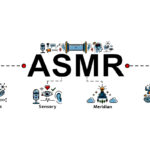Waking up frequently, tossing and turning, and poor quality of sleep quality is called restless sleep or fragmented sleep. Occasional sleep problems are common, but continuous restless sleep has a harmful impact on our health and wellbeing. In this post we discuss what is restless sleep? And look at its causes, symptoms, effects, and management techniques.
What is Restless Sleep?
Restless sleep involves interference with the regular sleep cycle, which stops people from having restorative sleep. People who suffer from restless sleep can wake up several times during the night, have trouble falling back asleep. And wake up feeling tired instead of comfortably passing through various stages of sleep.
Normal sleep mostly occurs in multiple stages, and it includes non-rapid eye movement (NREM) and rapid eye movement (REM). Three stages of NREM sleep are identified by unique patterns of brainwave activity. Dreaming happens during REM sleep, and the body goes through temporary immobility.
On other hand, restless sleep results in shallow and fragmented sleep because of frequent disturbances in these stages of sleep. People might not enter into a deeper, and a more restorative sleep stages that is necessary for mental and physical healing. Rather, they might sleep through lighter stages longer, which could make them feel sleepy, irritable, and exhausted during daytime.
Causes of Restless Sleep
Many things might cause restless sleep, such as:
- Stress and Anxiety:
It might be difficult to relax and fall asleep when facing psychological stress, anxiety, and worry. Frequently waking up during the night can happen because of difficulty in achieving restorative sleep. And that’s caused by anxious thoughts and increased arousal levels.
- Poor Sleep Hygiene:
The body’s natural circadian rhythm can get disrupted by excessive consumption of caffeine or alcohol , irregular sleep cycles, and stimulating activities done right before going to bed. And also cause insomnia.
- Environmental Factors:
Repeated awakenings during the night might result from external influences including light pollution, noise, unpleasant bedding. And severe temperatures that disturb sleep. - Medical Conditions:
Sleep apnea, Restless legs syndrome (RLS), chronic pain, gastrointestinal issues, and hormone imbalances are some primary medical illnesses. That can interfere with sleeping patterns and cause restless sleep. - Medicines:
Medicines like corticosteroids, antidepressants, stimulants, and asthma or high blood pressure medicines, can disrupt sleep cycles & cause restless nights.
- Sleep Disorders:
Insomnia, circadian rhythm disturbance, and periodic limb movement disorder, are some of the sleep disorders that cause your restless sleep.
Symptoms of Restless Sleep
While each person’s symptoms of restless sleep can differ, they mostly include:
- Having trouble falling asleep
- Frequent nighttime awakenings
- In bed, turning and tossing
- Not feeling energetic when waking up in the morning
- Daytime tiredness or sleepiness
- Intolerance or unstable emotions
- Have issues in focusing or concentrating during day
- Tension or soreness in the muscles while you sleep
These symptoms negatively effect relationships, emotional health, & performance at work/school, and day-to-day functioning and general quality of life.

Harmful Effects of Restless Sleep
The negative effects of continuous restless sleep on one’s physical, mental, and emotional well-being can be serious. The following are few effects of continuous restless sleep:
- Reduced Mental capacity:
For cognitive functions like learning, memory consolidation, problem-solving, and decision-making, sleep is important. Prolonged sleep fragmentation can hinder cognitive performance, resulting in issues with focus, memory recall, and attention span. - Mood Disturbances:
Anxiety, irritability, sadness, and mood swings are all commonly linked to restless sleep. Lack of sleep can worsen already present mood disorders and raise the possibility of getting new ones. - Daytime Fatigue and Reduced Performance:
Individuals who face a lot of difficulty in falling asleep at night will experience fatigue, drowsiness, and poor energy levels during the day. That makes it hard for them to go on in their everyday lives effortlessly. This may affect productivity levels at work, in the classroom, and overall.
- Increased Risk of Accidents and Injuries:
Lack of sleep and fatigue during the day raise the possibility of accidents and harm at work and at home. Errors, falls, and accidents can be caused by delayed reactions, less awareness, and impaired decision-making skills.
- Compromised Immune Function:
Getting enough sleep is necessary for immune system maintenance and disease and infection prevention. People who have chronic restless sleep are more vulnerable to diseases such as the flu and colds. Because of the possibility of immune system impairment/damage. - Cardiovascular Health Risks:
Increased risk of cardiovascular disorders, including hypertension, stroke, coronary artery disease, and heart failure, has been associated with sleep disruptions. Sleep disturbances caused by sleep fragmentation can cause blood pressure to rise, heart problems, inflammation, and oxidative stress.
Management Strategies for Restless Sleep
Fixing primary reasons, forming proper sleep routines, and putting relaxing and quality-improving measures to use are all part of managing restless sleep. The successful management techniques for restless sleep are:
- Create a Regular Sleep Schedule:
Maintaining consistent sleep-wake routine helps in promoting good sleep patterns and managing body’s internal clock. Having a consistent bed going time and wake up time, even on the weekends, it promotes good sleep hygiene and high-quality sleep. - Creating a Relaxing Bedtime Routine:
Before going to bed, relaxing activities can help the body recognize that it’s time to wind down and get ready for sleep. Deep breathing exercises, meditation, reading, taking a warm bath, and listening to relaxing music can all be part of a relaxing nighttime ritual.
- Improving Sleep Environment:
Making a comfortable sleeping space can improve the quality of your sleep and reduce night-time disturbances. This can involve buying a supportive mattress and pillows, regulating the humidity and temperature in the room. Using curtains or white noise generators to block out light and noise. Keep electronic gadgets away from your bedroom.
- Restricting Electronics device & stimulants:
To encourage relaxation and improve the quality of your sleep. Stay away from coffee, nicotine, stimulating activities like intense physical activity, big meals, and screen time just before bed. Try to avoid using devices for at least an hour or 30 mins, before going to bed, . Because the blue light they emit can disrupt the production of melatonin, a hormone that controls sleep-wake cycles.
- Practicing Stress Management Techniques:
Keeping tension and anxiety under control is important for ensuring sound sleep. Before going to bed, activities like journaling, progressive muscle relaxation, and meditation can help lower tension and increase relaxation.
- Getting Treatment for Underlying Conditions:
If changes in lifestyle are not enough to reduce restless sleep. It’s important to speak with a healthcare provider for additional assessment and treatment. Medicine, therapy, or medical equipment, are necessary for underlying medical issues like sleep apnea, restless legs syndrome, or mood disorders. - Consulting a Sleep Specialist:
To identify and treat underlying sleep disorders that are causing restless sleep. It may occasionally be necessary to speak with a sleep specialist or to have a sleep study conducted. A sleep specialist can offer customized advice and choices for therapy based on each patient’s needs and preferences
Conclusion
Now you know what is restless sleep? and how it can have serious negative effects on one’s physical, mental, and emotional health. And also on one’s general quality of life and ability to go about everyday activities.
FAQs
Q1: What causes restless sleep?
Ans: Existing health issue, stress, restless leg syndrome, sleep apnea and environmental factors.
Q2: What is restless sleep syndrome?
Ans: In restless sleep syndrome, one is unable to sleep properly even if he wants. The mind and both remain restless in it.
Q3: what is restless sleep?
Ans: When people cannot sleep properly and keep waking up at regular intervals in their sleep. Such a condition is called restless sleep.





